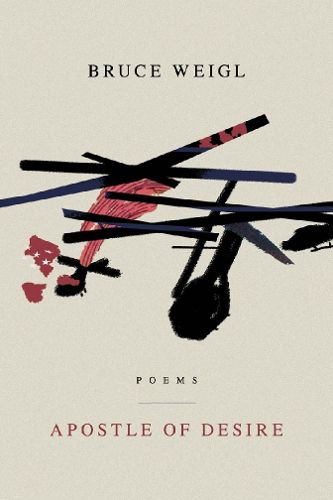Readings Newsletter
Become a Readings Member to make your shopping experience even easier.
Sign in or sign up for free!
You’re not far away from qualifying for FREE standard shipping within Australia
You’ve qualified for FREE standard shipping within Australia
The cart is loading…






Pulitzer Prize Finalist and one of America's most revered military veteran writers, Bruce Weiglbringsreaders face-to-face with our country's legacy of violence, the suffering of combat PTSD, and what it means to be truly haunted.
Taking its cue from James Wright's goal to write, "the poetry of a grown man," the poems inApostle of Desirejuxtapose the peace and comfort offered by the natural world with the bruising intensity of manmade violence. These sudden tonal shifts express a vulnerability and extremity of feeling that strips audiences' own emotions bare, leading readers to question their roles as bystanders and consumers of violent media.
In sharing his intertwining feelings of love and shame for both country and self, Weigl places readers into the role of the watcher and opens a window into the traumas of the Vietnam War and life's daily battles with PTSD. The honesty of Weigl's poetry exposes the ghosts of pain while still witnessing the glories of love, nature, and his ongoing experiences with the rich daily life of contemporary Vietnam.
Readers will face the solitude of regret and the hopeful pursuit of redemption-remembering the past and looking toward the future.
$9.00 standard shipping within Australia
FREE standard shipping within Australia for orders over $100.00
Express & International shipping calculated at checkout
Pulitzer Prize Finalist and one of America's most revered military veteran writers, Bruce Weiglbringsreaders face-to-face with our country's legacy of violence, the suffering of combat PTSD, and what it means to be truly haunted.
Taking its cue from James Wright's goal to write, "the poetry of a grown man," the poems inApostle of Desirejuxtapose the peace and comfort offered by the natural world with the bruising intensity of manmade violence. These sudden tonal shifts express a vulnerability and extremity of feeling that strips audiences' own emotions bare, leading readers to question their roles as bystanders and consumers of violent media.
In sharing his intertwining feelings of love and shame for both country and self, Weigl places readers into the role of the watcher and opens a window into the traumas of the Vietnam War and life's daily battles with PTSD. The honesty of Weigl's poetry exposes the ghosts of pain while still witnessing the glories of love, nature, and his ongoing experiences with the rich daily life of contemporary Vietnam.
Readers will face the solitude of regret and the hopeful pursuit of redemption-remembering the past and looking toward the future.